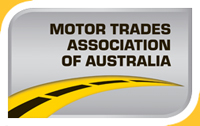An Industry at Crossroads - the Australian Motor Industry Federation's plan for the future survival of the Australian automotive industry
- Details
- Published: Tuesday, 25 June 2013 23:18
The Australian Motor Industry Federation (AMIF) today demanded an automotive industry Green Paper/ White Paper process be undertaken to address unprecedented change impacting the entire automotive industry not just car manufacturing.
During an address the National Press Club in Canberra, AMIF CEO, Richard Dudley, said the industry was facing a ‘perfect storm’, where every sector of the automobile industry is undergoing generational change.
‘For too long, successive Governments have failed to recognise that the domestic automotive industry does not begin and end with vehicle and component manufacturing and that a new approach is needed that includes the other 75% of the industry who employ 320,000 Australians in 100,000 businesses.
‘2700 people left car and car component manufacturing in 2011/12 but more than 13,000 people left the automotive service and repair sectors over the same period,’ Mr Dudley said:
Mr Dudley said recent research showed there to be a shortage of 19,000 skilled mechanics in Australia now. Those shortages, coupled with the effects of globalisation, environmental protection policy, rapid technological advances, shifting consumer behaviour and the maturation or decline of business life-cycles are creating a maelstrom that will have catastrophic consequences on the entire industry and the sustainability of its services to the community.
‘There must be a different approach to policy planning for the future. For too long, successive Governments have failed to recognise that the domestic automotive industry does not begin and end with vehicle and component manufacturing. This is why we continue to see ineffective, ad-hoc policy that fails to address the critical issues all of the automotive industry is facing.
‘Given that the automotive retail, service, repair and recycling sectors make up the largest concentration of small business in Australia, and depth of Australia’s reliance on the motor vehicle, it is irresponsible to consider any policy mechanism outside of a White Paper/Green Paper to develop comprehensive, evidence based policy to guide and sustain the medium and long term future of the Australian automotive industry." Mr Dudley concluded.
For further information, please contact Mr Richard Dudley CEO of AMIF on (02) 6273 8222 or 0412 146 828.
AMIF’s position paper Automotive 2018 – An Industry at Crossroads can be viewed at www.amif.com.au.


